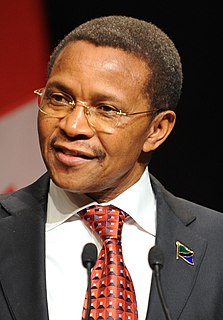Top 254 Programmes Quotes & Sayings - Page 5
Explore popular Programmes quotes.
Last updated on April 15, 2025.
Apostolic and missionary fruitfulness is not principally due to programmes and pastoral methods that are cleverly drawn up and "efficient", but is the result of the community's constant prayer (cf. "Evangelii Nuntiandi," 75). Moreover, for the mission to be effective, communities must be united, that is, they must be "of one heart and soul" (cf. Acts 4:32), and they must be ready to witness to the love and joy that the Holy Spirit instils in the hearts of the faithful (cf. Acts 4:32).
I was in the second year of my PhD when I first had the idea - I'd recently started working as a translator, which meant firstly that I was hearing about amazing-sounding books from other translators, and also that I was getting enough of an insider's view of the publishing industry to be aware of all the implicit biases that made it so difficult for these books to ever get published, especially if they weren't from European languages (harder to discover, editors can't read the original, lack of funding programmes, authors who don't speak English).
In the anarchist milieu, communism, individualism, collectivism, mutualism and all the intermediate and eclectic programmes are simply the ways considered best for achieving freedom and solidarity in economic life; the ways believed to correspond more closely with justice and freedom for the distribution of the means of production and the products of labour among men. Bakunin was an anarchist, and he was a collectivist, an outspoken enemy of communism because he saw in it the negation of freedom and, therefore, of human dignity.
We design our own programmes; we take leadership. Of course the donors come in to support us, to complement our efforts. Our responsibility to the donors is about accountability: about how we use that money. If somebody gives you his money, definitely he will be interested in knowing how you spend the money.
The right-of-centre parties still often compete with left-of-centre ones to proclaim their attachment to all the main programmes of spending, particularly spending on social services of one kind or another. But this foolish as well as muddled. It is foolish because left-of-centre parties will always be able to outbid right-of-centre ones in this auction - after all, that is why they are on the left in the first place. The muddle arises because once we concede that public spending and taxation are than a necessary evil we have lost sight of the core values of freedom.
A major cause of the Roman Empire's decline, after six centuries of world dominance was its replacement of stone aqueducts by lead pipes for the transport and supply of drinking water. Roman engineers, the best in the world, turned their fellow citizens into cripples. Today our own "best and brightest," with the best of intentions, achieve the same end through childhood vaccination programmes yielding the modern scourges of hyperactivity, learning disabilities, autism, appetite disorders, and impulsive violence.
Comic books, movies, radio programmes centered their entertainment around the fact of torture. With the clearest of consciences, with a patriotic intensity, children dreamed, talked, acted orgies of physical abuse. Imaginations were released to wander on a reconnaissance mission from Cavalry to Dachau. European children starved and watched their parents scheme and die. Here we grew up with toy whips. Early warning against our future leaders, the war babies.
I would like to draw attention to the fact that we have gone from pure trade [with China] in traditional goods [energy resources, such as hydrocarbons, oil and now natural gas, petrochemicals on the one hand and textiles and footwear on the other] to a whole new level of economic cooperation. For example, we are working together on space programmes. Moreover, we are developing and soon will begin the production of a heavy helicopter. We are now tracing the plan for the creation of a wide-body long-range aircraft.
I was kind of reared by television, but the BBC, it still had that thing - and people are always invoking that kind of Reithian idea - where you could learn stuff from it. If you put a kid in front of a telly now to be reared by that you'd just have a jibbering idiot, you know what I mean? Just adverts for a start. It's almost like the programmes are an afterthought, the real business of this channel is to sell you things and we're just going to space out those announcements with some crap to watch.
You know when you're thinking about what you want to be when you grow up, or how you want your life to pan out. I couldn't imagine anything better than living in a hotel so you'd never have to worry about washing up, making the bed, anything like that, and having a servant to come in and play all your favourite TV programmes.
If farmers become weak the country loses self-reliance but if they are strong, freedom also becomes strong. If we do not maintain our progress in agriculture, poverty cannot be eliminated from India.But our biggest poverty alleviation programme is to improve the living standard of our farmers. The thrust of our poverty alleviation programmes is on the uplift of the farmers.
Television in the 1960s & 70s had just as much dross and the programmes were a lot more tediously patronising than they are now. Memory truncates occasional gems into a glittering skein of brilliance. More television, more channels means more good television and, of course, more bad. The same equation applies to publishing, film and, I expect, sumo wrestling.
There is a section of our population in South Africa that you can't expect to get integrated in the economy of its own. These are people without skills and that will include young people who might very well have matric certificates, but don't have the skills to be absorbed in the economy. So we need to target people like those in a special way, in a focused way so that they have the skills and the capacity to participate in the economy. That requires special programmes.
Their [BBC] idea of bipartisanship is to try not to offend the Conservative party, try not to offend the Labour party.There is no analysis of anything beyond that, and these two parties are exactly identical, following the same Neoliberal policies for thirty years. And it's no criticism outside of that, it's just that there's basically sectarian pandering to these two individual parties, these two individual organisations. They still make a lot of great programmes and do a lot of great things, but there's not much political analysis happening broader to that.












